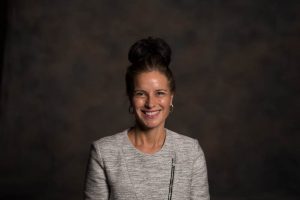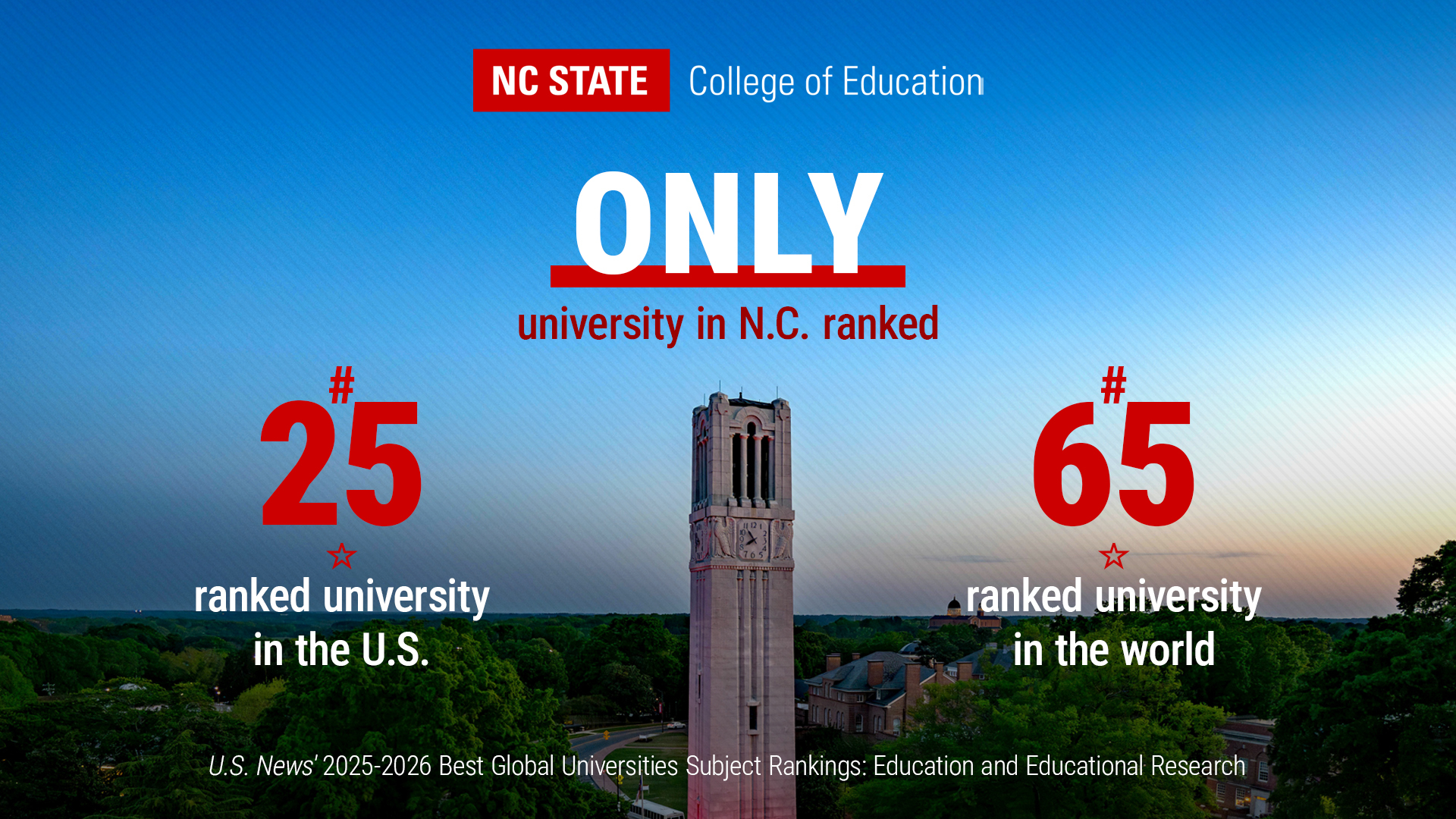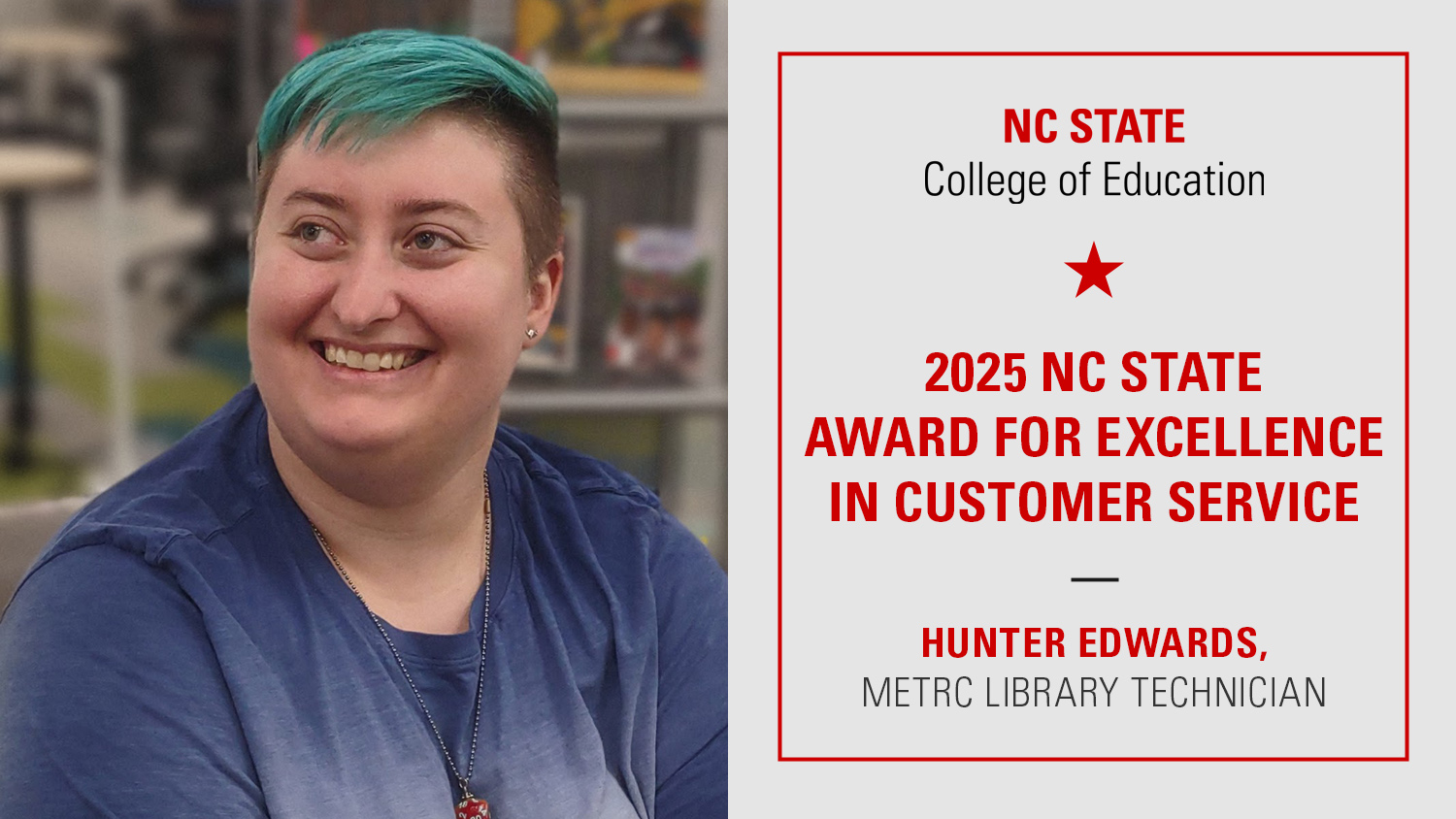5 Questions with RTI University Scholar Sylvia Nassar-McMillan

The 2016-2017 class of RTI University Scholars includes, for the first time, researchers from NC State. The RTI University Scholars program is funded by RTI International, a nonprofit research organization dedicated to improving the human condition. Dr. Sylvia Nassar-McMillan was selected from researchers across the University of North Carolina system to participate in this prestigious program. Find out how Nassar-McMillan, professor in the Department of Educational Leadership, Policy, and Human Development and coordinator of the College of Education’s counselor education doctoral program, will spend her year away from the college.
What is the RTI University Scholars program?
The RTI University Scholars Program provides support for distinguished academic researchers from North Carolina universities to spend scholarly leave time at RTI. The goal of the program is to foster collaboration between university and RTI scholars and to catalyze opportunities for externally funded, joint projects in the future.

Tell us a little bit about the research you will spend the next year working on.
Over the next year, I will collaborate with my RTI partners to develop career interventions and curricula for training trainers, as well as program evaluation
tools and approaches geared toward enhancing the global workforce development efforts within RTI’s Workforce and Employment Opportunities team. I will provide consultation and education in this area, and will focus on developing publications about career and other supports for youth development to build capacity and scientific stature among both internal and external stakeholder groups.
Why is career development an essential part of a curriculum?
Think about the inherent purpose of education in contemporary society. Education is intended to lead to subsequent employment in the world of work. As educators and human development professionals, any connections we can help students and clients make with their future potential vocational exploration and development will greatly extend their learning beyond the classroom. For individuals and groups who are underrepresented or marginalized in educational and employment sectors, this is a particularly important concept because it can serve to instill both resilience and hope for the future.
How will this experience shape you as an educator?
I became a career counselor 30 years ago, and have developed and delivered career interventions and curricula for populations ranging from K-12 well into adulthood over the course of my career thus far. This partnership with RTI provides an opportunity for me to shape the career and workforce efforts in developing countries of the world where they are most critically needed. It is what I have been striving to do in my most recent years through various consultancies. RTI’s deep and broad level of engagement with USAID and other major donor funded projects provides a much richer platform and, correspondingly, synergistic potential for impact.
What advice do you have for students considering a career in education?
Think daily about the purpose of education, not only in the short term but also over the longer term. What seeds do you hope to plant with your students and clients, and what do you hope to see blossom as a result in the future? The essential components of career development are self-exploration, exploration of the world of work and its corresponding opportunities, and finding possible matches between self and the world of work. Any opportunities you can create for your students and clients to think about those three components will serve them well. On a final note, think about your own career path, and how it was shaped. Who and what influenced you? What did you learn about yourself that led you toward your current and future career goals? In what ways did your curricular and non-curricular experiences play a role in your career development? How can you, in turn, serve as a catalyst for your students and clients, particularly those who may have fewer positive influences and opportunities to fully explore their potential in the future world of work?
- Categories:


